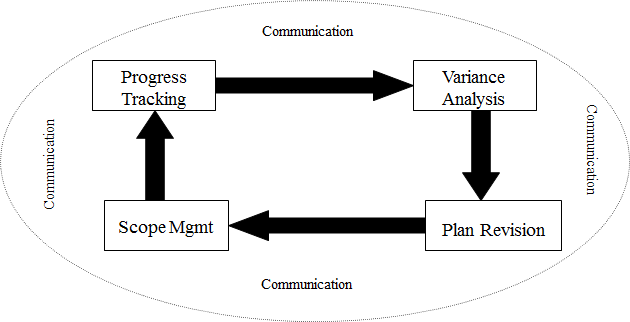The most important element of a successful project is meeting the business case and original scope of the project. But that’s easier said than done. The bad news is that organizations often find it challenging realizing the benefits outlined in the original business case. The good news is that the challenges routinely arise at predictable pain points, which can be addressed.
This post will identify those 4 pain points and outline how to address them.
1) Project Kickoff
The pass-off from strategy to execution is the first challenge. In the portfolio stage we decided what projects are best to support the Organizational Vision and Strategy. The initial output from the portfolio process (specifications) may have vague language surrounding important dimensions of a project.
For example, a capital project might have a requirement that merely says “Improve system performance”. A statement like this needs qualifications and quantifications. 30% improvement in system performance will have different associated cost and schedule from 10% improvement. As a result, any plans and baselines developed without clear knowledge of the full scope will create a variance right off the bat. If the stakeholder informs the project manager that they have differing expectations, then the project is in trouble meeting its ROI or solution objective. The later in the project this happens, the worse off the scope, budget, schedule, and/or business case will be.
To avert this challenge, an organization needs SMEs involved in the definition process, a rigorous project definition process, and/or project management expertise to apply the process.
2) Governance
Poor oversight and governance throughout the execution process can continue to hurt the project’s achievement of the original business objectives. The dynamic business environment may change the objectives and/or the means for achieving that objective. Because of this, a project can deliver on the original specifications, but still not be aligned with the business objectives it was meant to achieve.
3) Communication
Things change, projects drift, business objectives evolve. It requires an airtight process to make sure that changes are identified, acknowledge, and revised in a way that’s complementary to the original expectations. There are often deficiencies somewhere in the following process:

Any gap in the process will lead to misalignment that requires a scope, schedule, and/or scope change. One challenge here is for the stakeholder to expect and understand the costs associated with the impact analysis process and the resulting changes. Organizations rarely budget for impact analysis. It requires critical project resources and is disruptive to the current “status quo.” The saying in project management is, “Yes, we do charge for estimates.”
4) Risk Management
Another challenge for governance is properly managing risk, especially in monitoring and responding to project risks during execution. Executives have enough “real” problems to address that they often do not want to focus on problems that might not ever exist. It takes a well-oiled process to have the project manager dedicate the bandwidth to continually monitor the risks, have the fortitude to report negative findings to the stakeholder, and for the stakeholder to know when a significant change is needed. Often, this even means pulling the plug on the project altogether. Most organizations have difficulty with at least one stage of that process, which leaves the benefits of risk management unrealized.
For more help on navigating the challenges of project management, contact our experts today.


